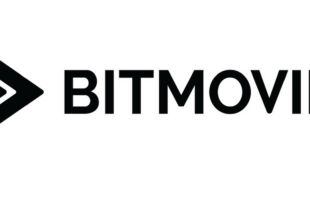With TV ratings key to winning advertising revenue, no wonder that TV networks in the Philippines are both highly competitive – and extremely sensitive – about the topic of audience measurement. And when those all-important figures might prove to have been manipulated, be sure the ‘injured’ party will doggedly pursue the matter to protect its share of the ad pie. Such is the situation in Manila where ABS-CBN has filed a P63million (US$1.5million) civil lawsuit against ratings provider AGB Nielsen Media Research (NMR) for allegedly allowing ratings surveys to be tampered with, and allegedly having failed to investigate reports of an “organized, systematic and well funded attempt to cheat at TV ratings”. In a fiery start to 2008, rival broadcaster GMA Network has also become embroiled in the ABS-CBN – AGB NMR controversy with a P15million (US$365,000) civil libel suit filed against ABS-CBN for allegations, aired over the former’s radio and TV programmes, that GMA Network was responsible for the manipulation of TV ratings. ABS-CBN initiated legal action against AGB NMR in December 2007 after an informant confessed that an unnamed rival network had paid him to search house to house and bribe AGB panel households in Bacolod City to switch TV programmes. Cash and groceries were handed out in the alleged operation that involved up to six other people. Bringing the case before the Quezon City Regional Trial Court (QCRTC), ABS-CBN stated, “We want AGB Nielsen to clean up their panels and replace the corrupted ones. The process is difficult, but it is the only way that AGB Nielsen can demonstrate its sincerity, intention, and determination to have a clean and fair TV ratings data for the media industry and the viewing public.” While it is still unclear as to whether the alleged bribery operation did take place, it is clear that the stakes are high in terms of advertising revenue available to TV networks in the Philippines. According to the latest reported data compiled by media buyer and strategist Mediaedge:cia Philippines, the total ad revenue across all media from January to November in 2007 came up to P139billion (US$3.4billion), of which 7% went to print media, 16% to radio and 77% to television. Based on that estimate, a sizeable P107billion (US$2.7billion) pie was available to all TV networks in the first 11 months of 2007. And to place ABS-CBN and GMA Network’s dominance of the market into perspective, Mediaedge:cia Philippines found that the two broadcasters won at least 80% of the available ad revenue – equivalent to P85.6billion (US$2.1billion). The remaining 20% of the 2007 ad revenue, or P21.4billion (US$527.9million), was shared among all remaining terrestrial and cable players. Commenting on the alleged ratings manipulation, Butch Raquel, GMA Network’s vice president of corporate communications said, “Although TV ratings are essential to gain advertising revenue, we cannot imagine why a TV network will go that far to gain leadership.” He also iterated that GMA Network “categorically denies all accusations” of having masterminded the bribery operation, and is claiming P15million (US$365,000) against ABS-CBN for moral and exemplary damages, as well as attorney fees. Calling for the act of manipulating TV ratings to be condemned, Bong Osorio, ABS-CBN’s head of corporate communications asserted, “If TV networks bribe panel homes, they are doing a big disservice to viewers because an unrepresentative panel will provide wrong information and lead to the production of programs that people do not really want to see. This will hurt viewers. “Also, TV ratings will continue to be the basis for the advertising industry to plan and implement their ad placements. Such an act will lead advertisers to make wrong decisions and can be damaging to their businesses,” he continued. Osorio reckons that if ABS-CBN’s allegations are found to be true, AGB NMR will lose its credibility and advertisers will look for a more reliable ratings provider. “On the other hand, if a TV network is found cheating at TV ratings, it will lose public trust and it may take years to rebuild its reputation,” he cautioned. The case has since been further complicated as AGB NMR continued to publish its survey results even after ABS-CBN obtained a 20-day temporary restraining court order against the research firm on December 20, 2007. The TV network has since petitioned the court to cite AGB NMR in contempt. In addition, progress of legal proceedings has hit a roadblock as the court dismissed the lawsuit on January 7, 2008 as premature. Upholding AGB’s service contract with ABS-CBN, the court said the former had up to three months to investigate and act on the issues concerning the integrity of data and survey processes raised by the TV network. Calling the court’s dismissal a “mere technicality”, ABS-CBN filed a motion of reconsideration to continue pursuit of the case stating, “The fight for a clean and fair TV ratings process is a crusade that ABS-CBN will continue.” A key development in the issue is also the emergence of new witnesses who are testifying for ABS-CBN’s case, including an ex-GMA radio station manager and a radio program director and anchorman, the latter GMA Network called a “disgruntled former employee” in its formal statement to the media. Osorio added, “With more witnesses coming forward to offer their accounts of the bribery operation, we trust that the court will allow us to present our evidence in due time to determine the truth.” Furthermore, a long-running technical problem highlighted throughout the dispute has been the alleged ratings leadership that ABS-CBN has in cable households over non-cable households. “GMA Network (has been seeking to clarify) with AGB Nielsen why the ratings of GMA Network’s programs are so low in cable TV households but so high in non-cable TV homes, a situation that does not (occur) for ABS-CBN’s programs,” says a statement from GMA Network. “It is a fact that GMA Network’s competitor owns and/or controls the dominant cable operators in the country. Thus, it is the one who has both the means and opportunity to know where the people meters are installed by AGB Nielsen among cable TV homes.” Noting that ABS-CBN’s Channel 2 leads TV ratings except in Mega Manila where it suffers blurry reception, Vivian Tin, ABS-CBN’s head of research and business analysis countered GMA Network’s claim by explaining that low-band channels 2 and 6 have low frequencies which make them vulnerable to noise generated by electricity, telecommunications activities, even wind and rain. She said that it was “not surprising” that viewers in affected areas including Mega Manila tend to switch to GMA Network’s programs for better quality visuals and audio. While ABS-CBN has taken measures to improve reception of the network, Tin asserted that digital terrestrial television (DTT) represented the long term solution to the problem. ”We have undertaken studies. We are just waiting for the National Telecommunications Commission (NTC) to put out the final guidelines for digital TV. We are ready to invest a few billion (pesos in a digital TV rollout),” she noted. ABS-CBN announced its intention to invest P500million for a partial migration to digital TV by mid-2008 and is already test-broadcasting, while GMA Network has also expressed interest in the switch but will prepare the budget and start testing when the final guidelines are released by NTC which is evaluating various DTT standards including America’s Advanced Television Systems Committee and Japan’s Integrated Services Digital Broadcast. On the libel suit filed against ABS-CBN, Raquel explained that fifteen of ABS-CBN’s reporters, hosts and talents have been implicated for defamatory statements aired on the network. He further points to AGB NMR’s investigations which saw the allegedly “corrupted” panels removed for a re-tabulation, from which revealed that viewing levels “did not significantly change” from the supposedly tainted data. “Channel shares with respect to ABS-CBN, GMA and other channels remained upon comparison between the original and reprocessed ratings data,” he added. While it remains to be seen how the case will develop given the multitude of complications involved, the emergence of new evidence, and the lengthy trials expected, legal proceedings among the three parties will definitely dominate the Filipino television scene for some time to come.
Ad – Before Content
Related Articles
- New Unanmed Memory season 2 key visual unveiled
©2022 Kuji Furumiya/KADOKAWA/Project Unnamed Memory
Paramount+ and MTV announce Dating Naked UK has been renewed for a second series
Gyeongnam Culture and Arts Foundation Invests in Ikegami UHK-X700 4K-UHD HDR Cameras
LFP Media Transforms Video Experience and Maximizes Revenues with the Bitmovin Player
Iceland’s Glassriver options Reykjavik Noir trilogy from Lilja Sigurdardottir for series adaptation, picked up by broadcaster Síminn
OOONA Partners with Audio Description Associates, LLC









